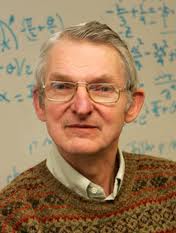Doug Mcilroy, 1997, History Of Computing At Bell Labs

Doug Mcilroy 1997 History Of Computing At Bell Labs For Sale

Transcript of “History of Computing at Bell Labs:”. Computing at Bell Labs is certainly an outgrowth of the mathematics department, which grew from that first hiring in 1897, G A Campbell. When Bell Labs was formally founded in 1925, what it had been was the engineering department of Western Electric.
From Wikipedia, the free encyclopediaMalcolm Douglas McIlroy (born 1932) is a,. As of 2007 heis an Adjunct Professor ofat. McIlroy is best known for having originallydeveloped the, and several tools, such as spell, graph, and.His seminal work on software componentization makes him apioneer of and.Dr. McIlroy earned his in engineeringphysics from in 1954, and ain applied mathematics from in 1959 for his thesis On theSolution of the Differential Equations of Conical Shells.
Hejoined in 1958, from 1965-1986was head of its Computing Techniques Research Department (thebirthplace of the operatingsystem), and thereafter was Distinguished Member of TechnicalStaff. He retired from Bell Labs in 1997, and currently serves asan Adjunct Professor in the Dartmouth College Computer ScienceDepartment.He is a member of the, and has won both the Lifetime Achievement Award ('The Flame')and its Software Tools award. Hp recovery disk windows 7 home premium. He has previously served the as national lecturer,chairman, member of the publications planning committee, andassociate editor for the Communications of the ACM, theJournal of the ACM, and ACM Transactions onProgramming Languages and Systems. He also served on theexecutive committee of. Quotes. Those types are not 'abstract'; they are as real as int andfloat. As a programmer, it is your job to put yourself out ofbusiness.

What you do today can be automated tomorrow. Keep it simple, make it general, and make it intelligible. The real hero of programming is the one who writes negativecode.See also. Early PL/I (EPL).Externallinks. (audio) Includes many autobiographical notes, along withdiscussion of many of the major Unix authors.